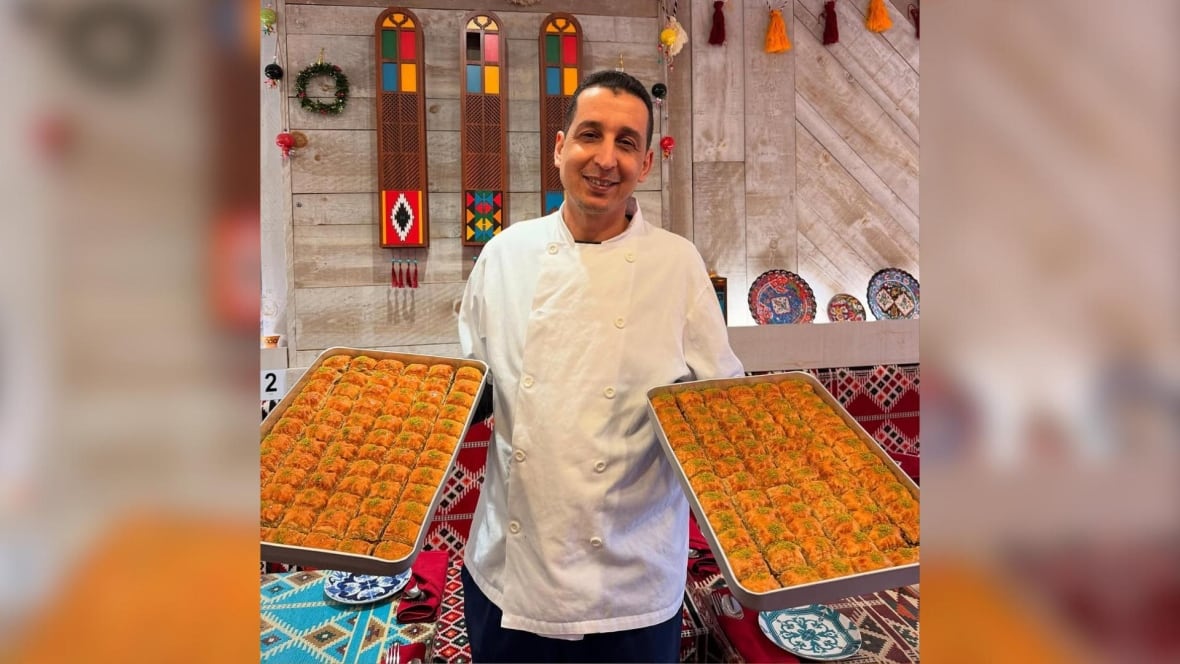
Hamilton restaurateur returns to Syria after 12 years for bittersweet reunion with family, former staff
Published: 2025-08-02 21:04:21 | Views: 7
After 12 years away from his homeland, Mohamad Tomeh said being back in his mother's arms made him feel "safe" and young again.
She was the first person the 42-year-old Hamilton restaurateur went to see after his July 11 return to Syria, where he was born and raised. He has a restaurant in the Ontario city called Tomah: A Taste of Syria and used to run a cheese factory in his hometown of Al-Nashabiyah.
"She was very happy," he said 12 days after his arrival.
Bashar al-Assad was ousted as Syria's president and his government overthrown late last year after a rapid offensive by armed factions. At the time, then prime minister Justin Trudeau wrote on social media: "The fall of Assad's dictatorship ends decades of brutal oppression."
Tomeh said he felt "very happy" when he heard the news and gave away free baklava in December following Assad's ouster.
"Now I think my country is on the right path to be safe [again] and friendly with the world," he said.

Tomeh said he hopes to stay in his hometown for a few more weeks. The trip has been full of bittersweet moments of reunions and happiness, but also sadness and loss.
"I didn't find my friend and some people from my family because I lost people," said Tomeh, who left his hometown in 2013.
"But … I am happy because I saw my family, I saw … so many friends."
Tomeh's restaurant is at 242 King St. W. in downtown Hamilton, the Ontario city's he's called home since immigrating to Canada in 2018.
Tomeh said he had worked in the cheese-making industry in Syria most of his life. His factory, which he owned for 15 years before leaving, had been destroyed along with the city's commercial area.
Among the rubble, however, what have remained standing are his old pomegranate and olive trees — in which he's found symbolism and motivation as they, "Don't die, bloom again."
Syria still facing struggles
Over two million Syrians — about 600,000 from neighbouring nations and 1.5 million who were displaced within Syria — have returned home since December, according to the United Nations Office of the High Commissioner for Refugees.
Tomeh is among those who left Syria in 2013 due to ongoing conflict. According to the 2021 census, over 97,000 people in Canada list Syria as their birthplace. Between November 2014 and December 2015, 44,620 Syrian refugees arrived in Canada, according to Immigration, Refugees and Citizenship Canada (IRCC).
Tomeh remains hopeful about Syria's future, but wants to bring awareness to the enduring issues.
"Life is very, very hard [here]. No electricity, no gas, no water."
Last week, for instance, parts of Syria's south and Damascus were hit by Israeli airstrikes in the worst fighting since Assad's fall, as Israel heightened its campaign to support the Druze minority people, claiming it's working to keep southern Syria demilitarized. Syria's new government has also been grappling with clashes between militias linked to the Arab minority group and local Bedouin fighters.
Some experts argue Israel's involvement is intended to challenge the new state's authority and maintain its own ability to exert influence over Syria.
Many Syrians return to a country largely destroyed
Basit Iqbal, an associate professor in McMaster University's department of anthropology, spoke to CBC Hamilton about the uncertainty Syrians returning to the country still face.
"Many have houses that have been destroyed, or bombed or whatnot, and if they don't have the funds to rebuild, because there's an economic crisis, and I think it's like 80 per cent of the country is under the poverty line," said Iqbal.
His upcoming book, The Dread Heights: Tribulation and Refuge after the Syrian Revolution, is based on fieldwork around Syria and looks at people's different relationships with Islam during times of war.
Iqbal said he was doing research for the book, near the southern Syrian border in Jordan, and spoke to one man with whom he still communicates.
"He spoke constantly about just his dream to go back ... that he couldn't return, even though he was so close by," said Iqbal.
"His whole life was shaped by this proximity to the border that he couldn't cross."
Iqbal recalled seeing bombing taking place in Syria from the border. His friend was unable to do anything for his family and friends just 20 minutes away. Now, that friend sends Iqbal a message any time he crosses the border, something that's not taken for granted.
Rebuilding his hometown
Iqbal said he saw many videos of individuals like Tomeh whose return to loved ones "immediately became a time of new mourning."
"What does it mean to go back to your home, where even if your home is still standing, it's right next to a world that's been turned to rubble?"
Tomeh said he wants to help, even if it's in a small way.
His old cheese factory is already being rebuilt, he said.
"I want to open an opportunity for the people, for my family," he said, adding he has reconnected with former employees there who are looking for work.
Tomeh wants to help contribute to the economy and the rebuilding of his hometown, and hopes to get visits from his Canadian friends.
"I hope they meet the people there. Syrian people are very kind."
Tomeh hopes to stay in his hometown for now but has no plans to move there permanently.
He's deeply grateful to the Hamilton community he loves and appreciates for supporting him through highs and lows.
"Sometimes my business is very slow. I don't make good money sometimes, but I'm very happy with people, with my community. You know why? Because [they are] kind people," said Tomeh.
"They respect [us]. I feel very happy when I see anyone comes and sit in my business."
Source link






